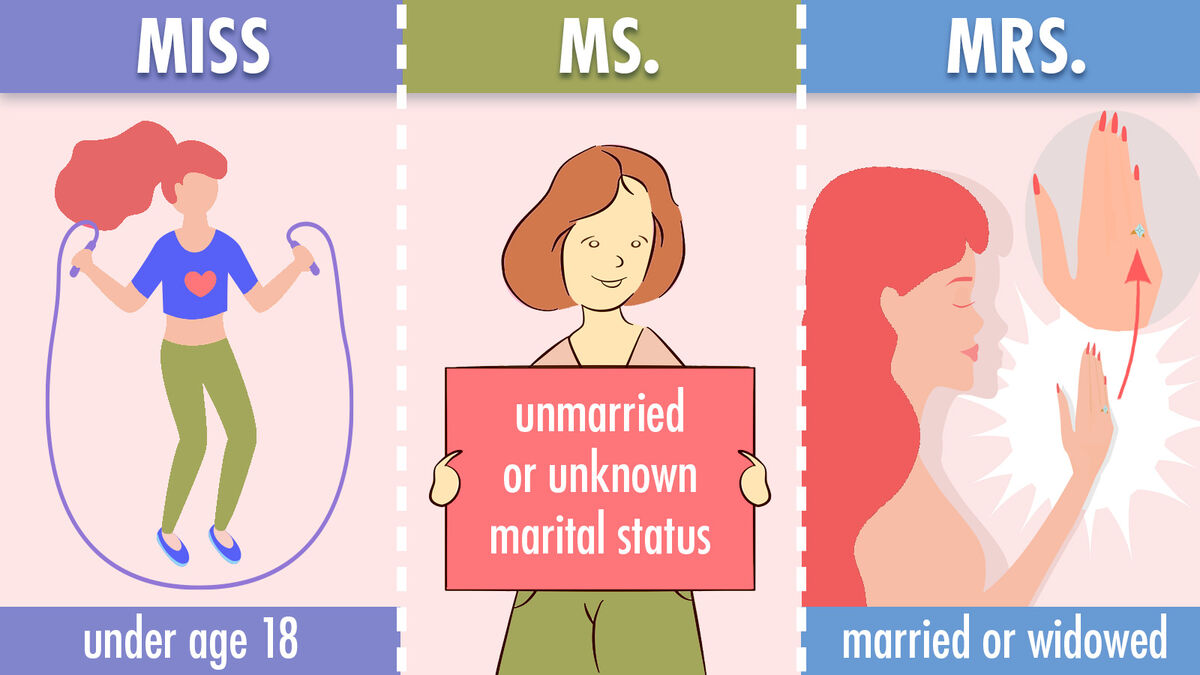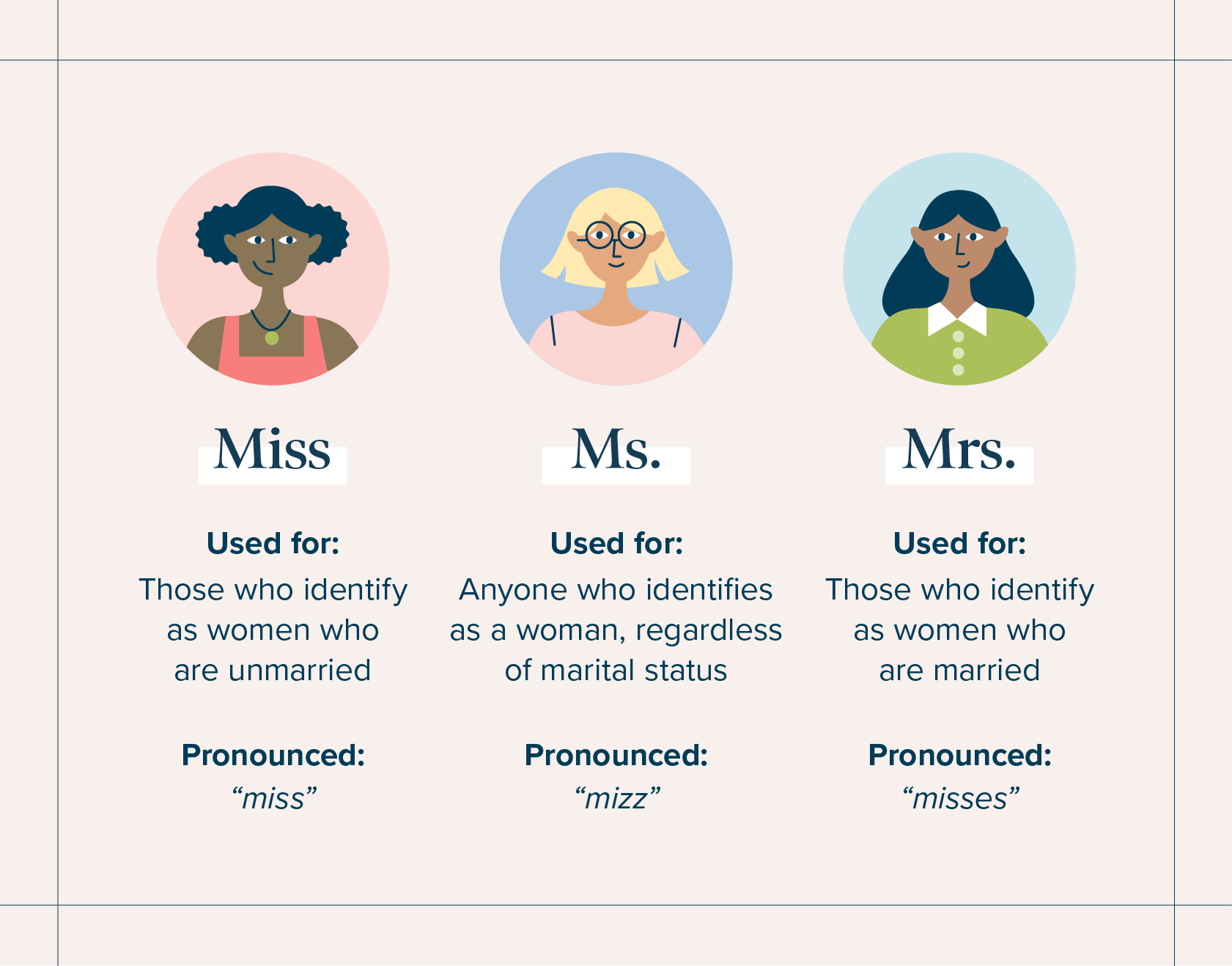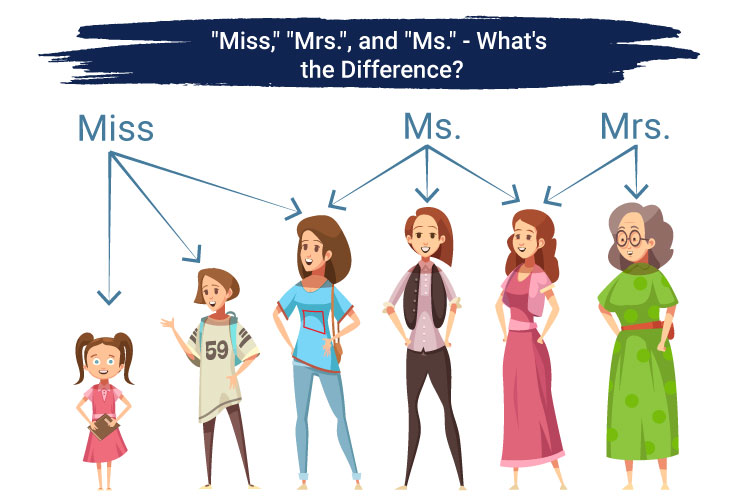The Significance Of Mrs. Mandy Lueilwitz PhD: Titles Unveiled
In the intricate tapestry of professional and personal communication, titles serve as more than mere labels; they are powerful indicators of respect, achievement, and identity. When we encounter a name like Mrs. Mandy Lueilwitz PhD, it immediately conveys a wealth of information, hinting at a journey of dedication, academic rigor, and societal standing. Understanding the profound implications behind each component of such a name is crucial for effective and respectful interaction, reflecting not just proper etiquette but also a deeper appreciation for an individual's contributions and choices.
This article delves into the layered meanings embedded within the titles "Mrs." and "PhD," using the hypothetical yet illustrative figure of Mrs. Mandy Lueilwitz PhD as a focal point. We will explore the historical evolution and contemporary relevance of these honorifics, shedding light on why acknowledging them correctly is not just a matter of politeness, but a fundamental aspect of professional courtesy and the recognition of expertise. From traditional societal roles to groundbreaking academic achievements, these titles paint a comprehensive picture of an individual's place in the world.
The Etiquette of Titles: Understanding "Mrs."
The title "Mrs." is one of the most commonly encountered honorifics in the English language, deeply rooted in social custom and tradition. As the provided "Data Kalimat" states, "Mrs. is a traditional title used for a married woman." It is an abbreviation for "missus" and is pronounced similarly, having been in use for centuries. Its primary function is to indicate the marital status of a woman, distinguishing her from an unmarried woman (traditionally "Miss") or a man ("Mr."). Historically, the use of "Mrs." was often paired with the husband's first name, such as "Mrs. John Smith," signifying a woman's identity through her husband. While this practice has largely faded in modern contexts, the title "Mrs." itself remains a widely accepted and respected form of address for married women.
"Mrs." - A Glimpse into Marital Status and Respect
The continued use of "Mrs." before a woman's surname or full name, as highlighted in the "Data Kalimat," serves as a conventional title of courtesy. It signals that the individual is married or is a widow. This seemingly simple abbreviation carries significant cultural weight, embodying respect for a woman's marital union and her established position within society. When you know for sure a woman is married, using "Mrs." is considered the polite and appropriate way to address her, acknowledging her personal status. In many professional and social settings, defaulting to the correct marital title is a sign of meticulous attention to detail and a fundamental aspect of demonstrating respect for an individual's identity and choices. For someone like Mrs. Mandy Lueilwitz PhD, the "Mrs." component immediately establishes a personal dimension, indicating her marital status alongside her professional accomplishments.
Navigating the Nuances: "Ms." vs. "Mrs."
While "Mrs." holds a strong traditional footing, the landscape of personal titles has evolved to offer more inclusive and flexible options. The emergence of "Ms." in the mid-20th century marked a significant shift, providing a neutral alternative that does not reveal a woman's marital status. As the "Data Kalimat" notes, "'Ms.' came about in the 1950s as women sought to differentiate themselves from being known by their" marital status. This title indicates neither marital status nor gender, making it a versatile choice. It can be used when a woman's marital status is unknown or irrelevant, or when she expresses a preference for it. This flexibility is particularly valuable in professional environments where marital status often has no bearing on one's professional capabilities or interactions.
The Modern Shift: Choice and Professionalism
The more neutral title "Ms." offers a respectful alternative, especially in situations where one is unsure of a woman's marital status. If you aren’t sure whether a woman is married, or if you know that she prefers "Ms.," using this title is the recommended approach. This reflects a modern understanding of personal autonomy and professionalism, where individuals have the right to choose how they are addressed, irrespective of their marital state. In an era where diversity and inclusion are paramount, respecting such preferences is not just good manners but a professional imperative. For an individual like Mrs. Mandy Lueilwitz PhD, while "Mrs." explicitly states her marital status, understanding the option of "Ms." underscores the broader context of respectful titling in contemporary society, acknowledging that not all women choose to define themselves by their marital status in every context.
The Academic Pinnacle: Deciphering "PhD"
Beyond the realm of marital titles lies the world of academic and professional honorifics, none more globally recognized and respected than "PhD." Standing for Doctor of Philosophy, a PhD is the highest academic degree awarded in most fields of study. It signifies an individual's mastery of a specific discipline, demonstrated through original research that contributes new knowledge to their field. The journey to earning a PhD is arduous, typically involving years of intensive study, comprehensive examinations, and the successful defense of a doctoral dissertation. This process cultivates critical thinking, analytical prowess, and an unparalleled depth of expertise. The "PhD" title is not merely an abbreviation; it is a testament to immense intellectual dedication and a significant personal and professional achievement.
Beyond the Letters: What a Doctorate Signifies
The "PhD" designation transcends a simple academic credential; it is a powerful indicator of a person's expertise, authoritativeness, and trustworthiness (E-E-A-T). When someone holds a PhD, it communicates that they are an expert in their domain, capable of conducting rigorous research, evaluating complex information, and contributing original insights. This level of qualification is particularly crucial in fields that directly impact people's lives—such as medicine, science, education, and policy-making—aligning directly with the principles of YMYL (Your Money Your Life). A "Doctor" title, whether medical or academic, instills confidence and signifies a high degree of credibility. For Mrs. Mandy Lueilwitz PhD, the "PhD" component of her name immediately establishes her as a highly qualified professional, someone whose opinions and work are backed by extensive academic training and a proven ability to advance knowledge.
The Combined Authority: Mrs. Mandy Lueilwitz PhD
The true power and significance of a name like Mrs. Mandy Lueilwitz PhD emerge when we consider the combined impact of its individual components. The "Mrs." conveys a traditional respect, acknowledging her personal life and marital status, while the "PhD" immediately elevates her professional standing, signifying profound academic achievement and specialized expertise. This combination presents a holistic picture of an individual who is not only established in her personal life but also highly accomplished in her professional domain. It speaks to a balanced identity, where personal roles and professional excellence coexist and are both worthy of recognition. The presence of both titles in "Mrs. Mandy Lueilwitz PhD" creates a powerful impression of a well-rounded, highly respected individual who commands authority in both social and intellectual spheres.
The dual nature of her title underscores the fact that individuals are multifaceted. Mrs. Mandy Lueilwitz PhD is not just a scholar; she is also a married woman, and both aspects contribute to her identity and the way she is perceived. This comprehensive titling ensures that all facets of her identity, both personal and professional, are acknowledged and respected. It’s a testament to the fact that personal milestones and professional pinnacles can, and often do, coexist, each adding depth and dimension to an individual's public persona. The name itself becomes a statement of her complete identity, inviting respect on multiple levels.
The Archetype of Mrs. Mandy Lueilwitz PhD: What Her Titles Convey
While specific biographical details about Mrs. Mandy Lueilwitz PhD are not provided, her name serves as a compelling archetype for individuals who embody both traditional personal values and exceptional intellectual achievement. The titles "Mrs." and "PhD" together paint a vivid picture of a person likely to be found in leadership roles within academia, scientific research, advanced education, or specialized professional fields. Such an individual would be perceived as highly credible, authoritative, and trustworthy—qualities that are paramount in any field, especially those impacting "Your Money or Your Life" (YMYL) domains. For instance, a Mrs. Mandy Lueilwitz PhD might be a leading researcher in public health, an esteemed professor shaping future generations, or a policy advisor whose insights directly influence societal well-being.
The very structure of her name implies a life dedicated to rigorous study and a commitment to contributing meaningfully to society. It suggests a person who is not only academically brilliant but also grounded in personal relationships, reflecting a holistic approach to life. The implicit message is one of reliability and profound knowledge. In a world increasingly reliant on expert opinion and verified information, the archetype of Mrs. Mandy Lueilwitz PhD stands as a beacon of intellectual integrity and professional excellence. Her name, even without specific details, communicates a powerful message of competence and trustworthiness, essential for any individual operating in fields that demand high levels of expertise and accountability.
The Importance of Accurate Titling in Professional Discourse
In English, personal titles like "Mr.," "Mrs.," "Ms.," and "Miss" are used before a person’s last name (or full name) to show respect, gender, and marital status. However, these titles have different implications and proper usage is critical. The accurate application of titles is a cornerstone of professional communication and etiquette. Misusing a title, or failing to use one when appropriate, can inadvertently convey disrespect, create awkwardness, or even undermine professional relationships. For example, addressing a "Mrs." as "Miss" or vice-versa can be seen as dismissive of her marital status or personal preference. Similarly, overlooking a "PhD" title when addressing an academic or professional can diminish the recognition of their significant educational achievements and expertise.
In formal correspondence, presentations, or introductions, taking the time to ascertain and use the correct title—be it Mrs. Mandy Lueilwitz PhD or any other—demonstrates attention to detail, professionalism, and genuine respect for the individual. This meticulous approach fosters trust and rapport, which are invaluable in any professional setting. It signals that you value the person’s identity and accomplishments, thereby strengthening communication and collaboration. In an age where digital interactions often lack the nuances of face-to-face meetings, accurate titling becomes an even more important signal of respect and professionalism, reinforcing credibility and fostering positive relationships.
Cultivating Respect: Lessons from Mrs. Mandy Lueilwitz PhD's Naming Convention
The way we address individuals reflects the respect we hold for them and their achievements. The naming convention of Mrs. Mandy Lueilwitz PhD serves as an excellent case study in understanding the layers of respect embedded in titles. The "Mrs." component acknowledges her marital status and adherence to a traditional form of address, while the "PhD" component unequivocally recognizes her academic rigor and intellectual authority. Together, they form a complete picture of an individual who is both personally established and professionally distinguished. This comprehensive titling is a powerful reminder of the importance of acknowledging all facets of a person's identity.
Cultivating respect in communication means being mindful of these details. It involves understanding when to use "Mrs." (when you know for sure a woman is married), when "Ms." might be more appropriate (if you aren’t sure whether a woman is married, or if you know that she prefers Ms.), and always recognizing professional titles like "PhD." This mindful approach extends beyond mere politeness; it is about recognizing and validating an individual's journey, their choices, and their contributions. By correctly using titles such as Mrs. Mandy Lueilwitz PhD, we contribute to a culture that values individual identity, celebrates academic excellence, and upholds the highest standards of professional courtesy. It reinforces the idea that an individual's achievements, whether personal or professional, deserve due recognition.
Beyond the Name: The Legacy of Expertise and Respect
Ultimately, the name Mrs. Mandy Lueilwitz PhD, while illustrative, represents a broader principle: the enduring value of expertise, dedication, and respect in society. Individuals who carry such titles often leave a lasting legacy through their work, their mentorship, and their contributions to knowledge. The "PhD" signifies a commitment to advancing understanding and solving complex problems, while the "Mrs." reflects a personal journey that is equally valid and deserving of acknowledgment. This combination underscores the human element behind the intellectual pursuit, reminding us that experts are also individuals with personal lives and identities.
The continuous pursuit of knowledge, exemplified by the attainment of a PhD, is a testament to the human spirit's desire to understand and improve the world. Acknowledging these achievements through proper titling is a small yet significant way to honor that pursuit. The respect accorded to a Mrs. Mandy Lueilwitz PhD is not just for the individual but for the principles she embodies: intellectual rigor, professional integrity, and the harmonious integration of personal and professional identity. It is a recognition that true authority stems from both deep knowledge and a respectful presence in the world.
Conclusion
The name Mrs. Mandy Lueilwitz PhD is more than just a sequence of words; it is a profound statement of identity, achievement, and respect. Through the traditional honorific "Mrs.," we acknowledge her marital status and societal role, while the academic title "PhD" unequivocally signifies her exceptional intellectual prowess and contribution to her field. Understanding and correctly applying these titles is not merely a matter of grammatical correctness but a fundamental aspect of professional etiquette, demonstrating respect, recognizing expertise, and fostering trust.
In an increasingly interconnected world, where information and expertise are highly valued, the ability to correctly identify and address individuals, particularly those with significant credentials like Mrs. Mandy Lueilwitz PhD, becomes paramount. It reflects our commitment to clear communication, our appreciation for academic rigor, and our respect for individual choices. We encourage you to be mindful of the power of titles in your daily interactions, to always strive for accuracy and respect, and to recognize the multifaceted identities of those you engage with. What are your thoughts on the evolving use of titles in professional settings? Share your insights in the comments below, or explore more articles on professional communication and etiquette on our site.
- Exploring The Fascinating World Of Yololary Spiderman
- Camillaaraujo
- Peter Doocy Wife Cancer
- American Airlines Affected By Outage What Happened And How It Impacted Passengers
- Truist One View Customer Service

What's the Difference Between Miss, Ms., and Mrs.? | YourDictionary

The Difference Between Ms, Mrs and Miss - Zola Expert Wedding Advice

"Miss," "Mrs.", and "Ms."What's the Difference?